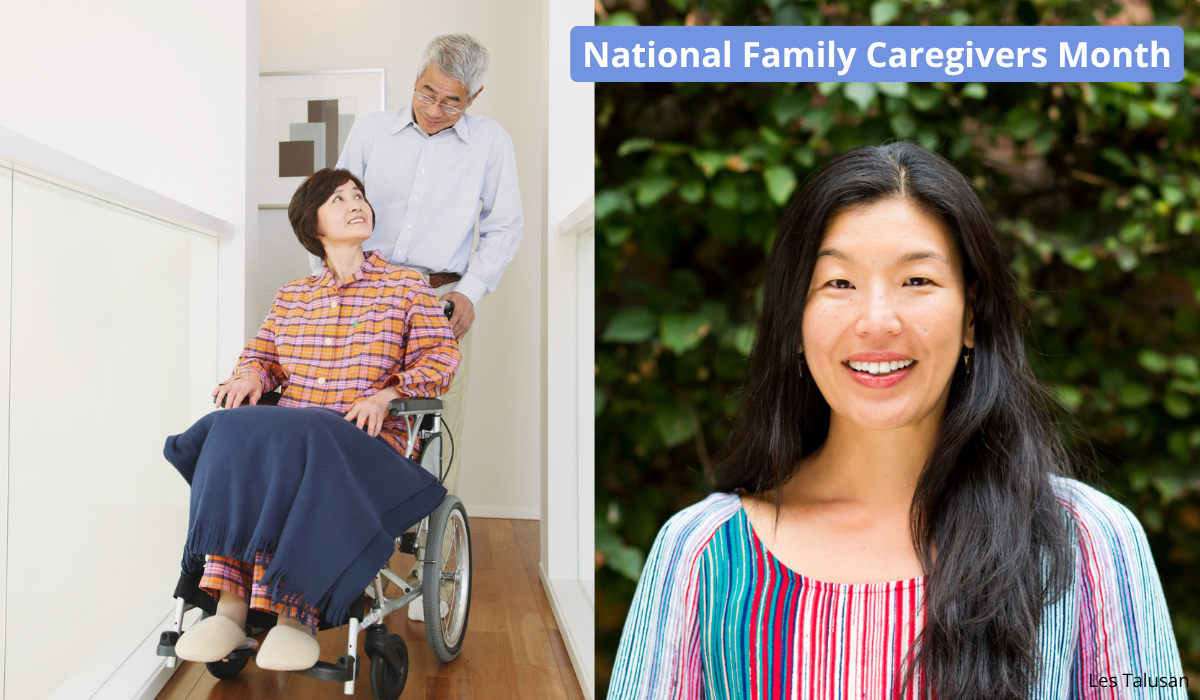The Caregiving Crisis No One is Talking About
An estimated 63 million Americans provide paid and unpaid care to people who count on them for essential needs. That number grows to 105 million when you consider all the people who lend unpaid support to someone who is ill, injured, or compromised.
These numbers say it all: Caregiving is colossal. But despite being the backbone of our society, "caregivers have never been under as much pressure and uncertainty as they currently are facing," says Ai-jen Poo, a caregiving and labor activist. "And it's compounding."
Poo would know. As executive director of Caring Across Generations, an organization working to build constructive, accessible care systems, she sees the fundamental hurdles caregivers face daily. And given the current national challenges, including a government shutdown and new proof-of-work requirements added to the Medicaid program, things are particularly dire.
Still, Poo is determined and emboldened. "If there was ever a group of people who know how to find their agency in a time of crisis, it is caregivers," she tells The Sunday Paper.
Here, she takes us through three critical things to know about the state of caregiving, as well as where to focus, and how to stay resilient and hopeful.
#1: So Many Are Affected by the Caregiving Crisis
Poo says it's critical to think about caregiving as an essential part of our economy. In that light, she considers how the cost of care impacts two groups of people: those who rely on Medicaid and those who exceed Medicaid eligibility but still cannot afford astronomical caregiving expenses.
For the 77 million people enrolled in Medicaid, many of these people rely on the program for their access to care, and impending cuts and program policy changes are threatening their access. A new policy passed over the summer will require people receiving Medicaid to frequently verify their work or volunteer status to continue receiving benefits. "Most people who are on Medicaid work, and those who don't are mostly caregivers who have very intensive caregiving responsibilities, so they can't work," says Poo. "Having onerous reporting requirements just means that people who are working are going to have more of a burden to prove that they are, with very little time to do that."
Then, the other group includes all the people who exceed Medicaid eligibility but do not earn enough to pay out of pocket for expensive care. "And that is the majority of people working in middle-class families," says Poo. She notes that Affordable Care Act tax extensions are set to expire, which could lead to higher health care premiums for those who signed up on the exchange. "As the enrollment period is starting, [people are] already seeing their cost of health care doubled, tripled," she adds. "And a lot of people are going to lose their health care coverage."
#2: There Is Oppressive Pressure on the Workforce
These days, a conversation about that state of care warrants a discussion about what's been happening with the U.S. Immigration and Customs Enforcement (ICE) raids. A massive segment of the American workforce is facing precarity, with repercussions for individuals, families, and communities. "I've heard a number of families who have talked about the caregivers for their loved ones with disabilities, who have disappeared or who are afraid to go to work because of the risk of being picked up and separated from their own families," says Poo. "When you have a workforce that is a third immigrant, it really is a huge part of the backbone of our ability to support caregiving families."
Adding to this pressure is the grave truth of how undervalued the care workforce is. Poo notes that the median annual income for home care workers is $22,000. These low wages lead to high turnover rates and degrade the quality of care. Additionally, earlier this year, the Labor Department announced it will be rolling back regulations that protect and promote workers' wages. "I think that that's going to make the bottom fall out for a lot of workers in this workforce, and then make the crisis in terms of getting access to care much worse," adds Poo.
#3: Power (and Hope) Is Found in the States
Despite the lacking federal support, some states have been “really on it” when it comes to helping people, says Poo. "We're at a crossroads, where every part of a system that was already patchwork is breaking down and we really need to shore it up—so we're going to be relying on states.” Poo gives the example of Washington State, which has created the nation's first social insurance program for long-term care. And she mentions New Mexico, which this month became the first state to offer free child care to its residents. "The fact that we have states that are taking the charge and rising to the moment and breaking new ground when it comes to securing care for families is a really good thing," she says.
How to Stay Resilient and Informed
Poo points to Caring Across Generations, the not-for-profit organization she co-founded and runs as executive director, as an ongoing source caregivers and families can turn to for "updates on what's happening across the caregiving landscape, from childcare to paid leave to long-term care." The site offers an informational newsletter, a way to email Congress directly, the option to become a care activist, and more.
Next year, Caring Across Generations will launch an initiative that speaks with a million caregiving families about their experiences, making visible the countless journeys around our nation's ever-expanding group of those who give and receive care. "We’re going to try to harness our collective experiences of care into one campaign, a million care conversations, and so we're going to ask everyone to be a part of that," says Poo, who also touts fellow not-for-profits Moms Rising and Domestic Workers Alliance as organizations and communities doing needed work in this space.
Remember This: There Is Massive Hope
If you are a caregiver, the first thing to remember is you are not alone. "Sometimes some days it just feels impossible, but just know that there are at least 63 million of us in your same boat,” says Poo. “The power of that is undeniable—and that's something that you can tap into at any time." Social media is also a friend, she adds. Share your story with the hashtag #carecantwait so others in a similar position can find you.
And lastly, remember the power and capability within you. “Caregivers know how to build community, even when there's no time and there's no capacity,” says Poo. “The resilience of caregivers is something that I'm thinking about so much and how much we as a country need to learn from caregivers and their ability to tap into agency and build community out of crisis.”
You can find additional information and resources at Caring Across Generations and National Domestic Workers Alliance
Please note that we may receive affiliate commissions from the sales of linked products.



